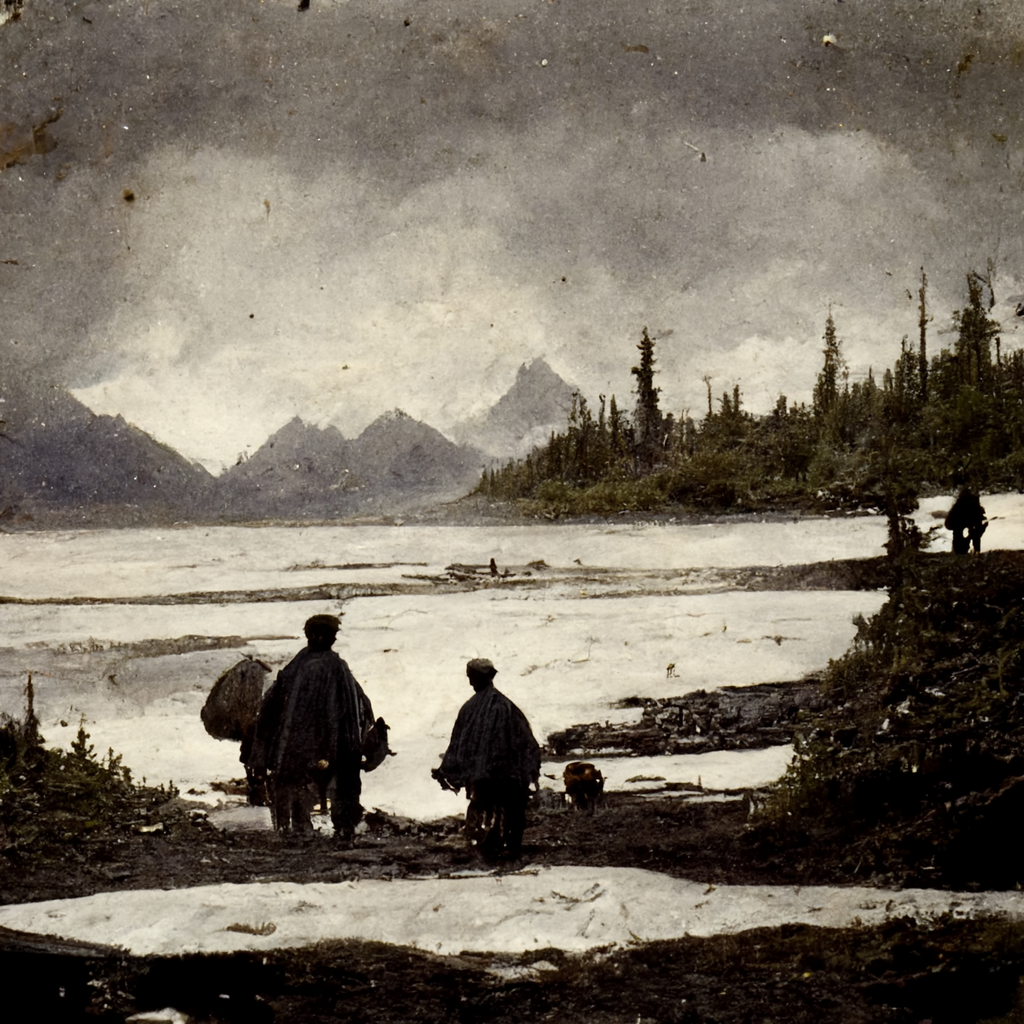THE PEOPLE OF THE PIT (2)
By:
August 6, 2022

HiLoBooks is pleased to serialize A. Merritt’s 1918 proto-sf story “The People of the Pit” for HILOBROW’s readers. Merritt’s yarn — an early example of “weird” fiction, which appeared in All-Story Weekly — destabilizes Enlightenment assumptions about the knowability of the universe, suggesting there are worlds here on Earth that lie beyond our understanding.
ALL INSTALLMENTS: 1 | 2 | 3 | 4 | 5 | 6 | 7 | 8 | 9.
It was a man. Still with the high climbing pad-pad he swayed to the fire. He stopped.
“Safe,” whispered the crawling man, in a voice that was an echo of the murmur overhead. “Quite safe here. They can’t get out of the blue, you know. They can’t get you — unless you go to them —”
He fell over on his side. We ran to him. Anderson knelt.
“God’s love!” he said. “Frank, look at this!” He pointed to the hands. The wrists were covered with torn rags of a heavy shirt. The hands themselves were stumps! The fingers had been bent into the palms and the flesh had been worn to the bone. They looked like the feet of a little black elephant! My eyes traveled down the body. Around the waist was a heavy band of yellow metal. From it fell a ring and a dozen links of shining white chain!
“What is he? Where did he come from?” said Anderson. “Look, he’s fast asleep — yet even in his sleep his arms try to climb and his feet draw themselves up one after the other! And his knees — how in God’s name was he ever able to move on them?”
It was even as he said. In the deep sleep that had come upon the crawler, arms and legs kept raising in a deliberate, dreadful climbing motion. It was as though they had a life of their own — they kept their movement independently of the motionless body. They were semaphoric motions. If you have ever stood at the back of a train and watched the semaphores rise and fall you will know exactly what I mean.
Abruptly the overhead whispering ceased. The shaft of light dropped and did not rise again. The crawling man became still. A gentle glow began to grow around us. It was dawn, and the short Alaskan summer night was over. Anderson rubbed his eyes and turned to me a haggard face.
“Man!” he exclaimed. “You look as though you have been through a spell of sickness!”
“No more than you, Starr,” I said. “What do you make of it all?”
“I’m thinking our only answer lies there,” he answered, pointing to the figure that lay so motionless under the blankets we had thrown over him. “Whatever it was — that’s what it was after. There was no aurora about that light, Frank. It was like the flaring up of some queer hell the preacher folk never frightened us with.”
“We’ll go no further today,” I said. “I wouldn’t wake him for all the gold that runs between the fingers of the five peaks — nor for all the devils that may be behind them.”
The crawling man lay in a sleep as deep as the Styx. We bathed and bandaged the pads that had been his hands. Arms and legs were as rigid as though they were crutches. He did not move while we worked over him. He lay as he had fallen, the arms a trifle raised, the knees bent.
“Why did he crawl?” whispered Anderson. “Why didn’t he walk?”
I was filing the band about the waist. It was gold, but it was like no gold I had ever handled. Pure gold is soft. This was soft, but it had an unclean, viscid life of its own. It clung to the file. I gashed through it, bent it away from the body and hurled it far off. It was — loathsome!
All that day he slept. Darkness came and still he slept. That night there was no shaft of light, no questing globe, no whispering. Some spell of horror seemed lifted from the land. It was noon when the crawling man awoke. I jumped as the pleasant drawling voice sounded.
“How long have I slept?” he asked. His pale blue eyes grew quizzical as I stared at him. “A night — and almost two days,” I said. “Was there any light up there last night?” He nodded to the North eagerly. “Any whispering?”
“Neither,” I answered. His head fell back and he stared up at the sky.
“They’ve given it up, then?” he said at last.
“Who have given it up?” asked Anderson.
“Why, the people of the pit,” replied the crawling man quietly.
RADIUM AGE PROTO-SF: “Radium Age” is Josh Glenn’s name for the nascent sf genre’s c. 1900–1935 era, a period which saw the discovery of radioactivity, i.e., the revelation that matter itself is constantly in movement — a fitting metaphor for the first decades of the 20th century, during which old scientific, religious, political, and social certainties were shattered. More info here.
SERIALIZED BY HILOBOOKS: James Parker’s Cocky the Fox | Annalee Newitz’s “The Great Oxygen Race” | Matthew Battles’s “Imago” | & many more original and reissued novels and stories.
